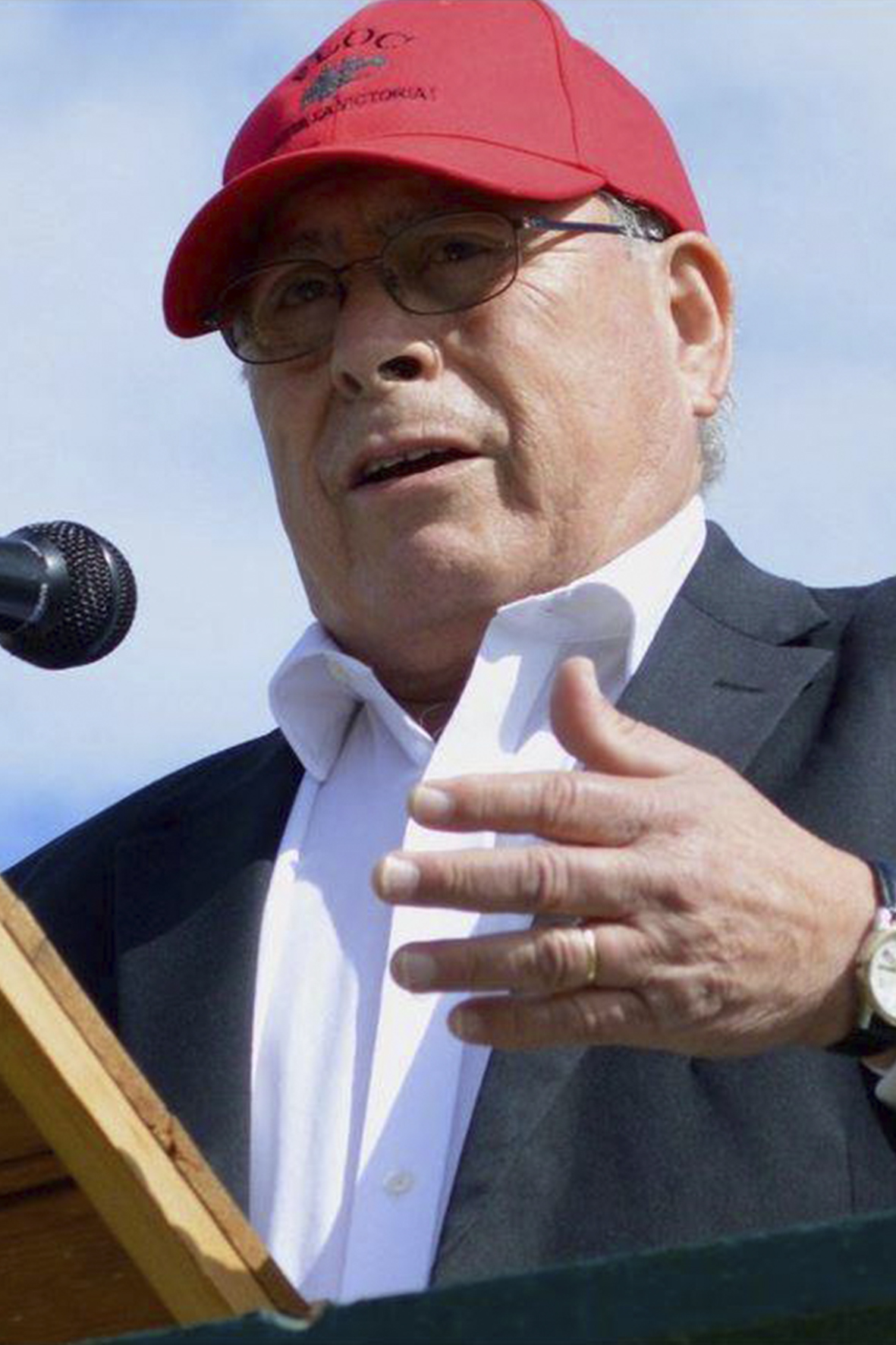Baldemar Velásquez (born February 15, 1947 in Pharr, Texas) is an American union activist. He co-founded and is chairman of the Agricultural Labor Organizing Committee of the American Federation of Labor and Congress of Industrial Organizations (AFL-CIO). He was named a MacArthur Fellow (aka "Genius Grant") in 1989 and awarded the Order of the Aztec Eagle in 1994, the highest honor Mexico can bestow on a non-citizen.
Velásquez was the third of nine children born to Cresencio and Vicenta Castillo Velásquez. His father was born into a Mexican-American family in Driscoll, Texas. His grandfather died when Cresencio was just 11 years old, forcing the young man to seek employment as a migrant worker. Baldemar's maternal grandparents fled to Pharr in 1910 after the Mexican Revolution, and his mother, Vicenta, was born there in 1920. His parents worked as migrant farm pickers in Indiana, Michigan, Ohio and Texas. Baldemar Velásquez later said that his parents instilled in him a strong work ethic and a passion for social justice tied to the Christian faith.
Velásquez started helping his parents in the fields at the age of four. His family traveled from the Southwest to the Midwest every year after the harvest season for various crops. In 1954, his parents settled permanently in Gilboa, Ohio, where they worked in the fields in the summer and at a cannery during the winter. Baldemar barely knew English when he entered first grade and struggled academically. He began to excel in his studies in eighth grade, making the honor roll. He attended Pandora-Gilboa High School, where he participated in baseball, basketball, football, and track, and took college preparatory courses.
A high school English teacher convinced him to go to college. He enrolled at Pan American University in Edinburg, Texas, in 1965, intending to earn a degree in engineering. Living in South Texas made him curious about his roots there, and he signed up for a Texas history that he says opened his eyes to the exploitation of Mexican Americans and farm workers. A local Roman Catholic priest helped him get financial aid and he transferred to Ohio Northern College in 1966. From there he transferred to Bluffton College and a year later graduated with a BA in sociology in 1969.
While at Bluffton College, he was mentored by Dr. Lawrence Templin, a noted pacifist who had been imprisoned for his beliefs and was then a professor of English literature. Templin's teachings profoundly influence Velásquez's approach to ensuring social justice for rural workers. Templin encouraged him to volunteer at the Congress of Racial Equality (CORE), where he spent several weeks working in the summer of 1968 and living with an African-American family in Cleveland, Ohio. After graduation, he spent time picking cherries in Michigan to pay off his student loans, and went to Wisconsin to meet with Obreros Unidos founder Jesus Salas (aka "Jesse Salas").
His association with Templin also changed his life in another way: Baldemar Velásquez married Templin's daughter, Sara Templin, on June 11, 1969. The couple had four children together.
Baldemar Velásquez and his father helped create FLOC (Farm Labor Organizing Committee) in September 1967. He was deeply influenced by the ideas of Gandhi, César Chávez and Martin Luther King Jr. Initially, its objective was just to organize rural workers so that they could cooperate with producers to improve wages, housing and education. From 1970 to 1983, Velasquez implemented a long-term strategy to gain public support for rural workers by publicizing the discrimination, low wages, and appalling working conditions they faced. Velásquez demanded that all strikers be trained in non-violent protest techniques and worked closely with local churches and religious groups so that large numbers of clergy and nuns were present (which inhibited police violence).
In 2010, he was one of 15 individuals appointed to an International Labor Organization committee to create global standards for working conditions for farm workers.
Velásquez received numerous honors. He received an inaugural Bannerman Fellowship in 1988 for helping to organize people for racial, social, economic and environmental justice. He was named a MacArthur Fellow (the so-called "Genius Grant") the following year by the John D. and Catherine T. MacArthur Foundation. In 1994, the National Council of La Raza awarded him the Hispanic Heritage Leadership Award. That same year, he also received Mexico's Aguila Azteca Award - the highest award Mexico can bestow on a non-citizen.
Velásquez also received honorary Doctor of Humane Letters degrees from Bowling Green State University in 1996, Bluffton College in 1998, and the University of Toledo in 1998.
Source: https://en.m.wikipedia.org/wiki/Baldemar_Velasquez
 Fonte: Facebook - Farm Labor Organizing Committee - FLOC
Fonte: Facebook - Farm Labor Organizing Committee - FLOC











